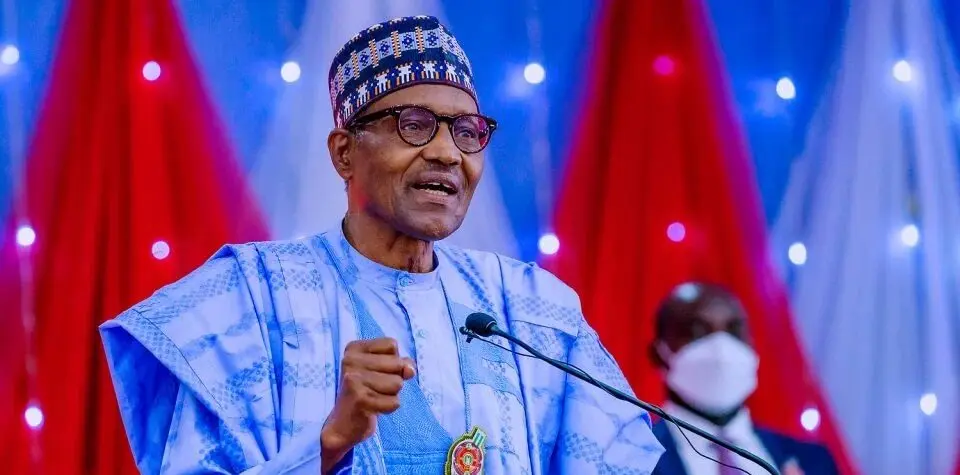The Economic Community of West African States (ECOWAS) is poised to strengthen investment in Science Technology and Investment (STI) to drive the industrialisation process for a competitive West African States region.
Indications to this development emerged during the opening ceremony of the first edition of the African Forum for Research and Innovation (FARI) that was held in Abuja on Monday, October 17, 2022.
Nigeria’s President Muhammadu Bihari whole speaking on the theme: “Science, Technology and Innovation for a more competitive ECOWAS,” said the West African region stands to gain a lot through the utilisation of STI to address the various diseases and catastrophes ravaging the region.
Represented by his Chief Of Staff, Professor Ibrahim Gambari, President Buhari noted that STI is recognised as the driver of Nigeria’s National Development Plan (2021-2025), adding that the utilisation and promotion of innovative applications with other socio- economic development indicators will lead to rapid industrialisation of the region.
He said, “Nigeria has taken steps to ensure that its youthful population is given the appropriate environment to achieve their dreams in innovation by passing legislation that governs and provides level -playing field via the Nigerian Start-up bill, which has been passed by our National Assembly and I look forward to assenting to the landmark piece of legislation as a critical building block for energising our innovation landscape.
“In line with the mandate of scheduled plan of action of the STI for the ECOWAS region, there is need for researchers to acquire modern and state- of- the art equipment and materials thereby strengthening the capacity of the region to serve as a catalyst for regional cooperation and regional integration through policy harmonisation, advocacy, trade liberalisation, trade facilitation in all sectors of the STI ecosystem,” he said.
President of the ECOWAS Commission, Omar Touray in his speech said that STI is essential to competitiveness and is one of the major drivers of economic growth, social welfare and adaptation to the environment. He added that STI is a factor in the modernisation of education systems, agricultural production, predictability of seasons and a potential source of job creation and poverty alleviation.
He noted that ECOWAS has made commitment to STI through Article 27 of the Charter on Scientific and Technological Cooperation, the Directive (A/DIR.1/06/12) on Science, Technology and Innovation and the Supplementary Act (A/SA.2/06/12) adopting the ECOWAS Policy on Science, Technology and Innovation (ECOPOST).
He said that the region must bridge the gap between it and the technologically advanced nations of the world by investment.
He said,“Investing in research and innovation can help to overcome this barrier by providing teachers with high-quality training and encouraging national and regional science and technology research at all levels of the education system. I welcome the creation by ECOWAS of the Research and Innovation Support Programme (PARI), which provides grants of 400,000 USD every year for regional research.”
Also speaking at the Forum, minister of science technology and innovation, Dr. Adeleke Mamora, said the experts’ forum is targeted at improving the region’s scientific and technological research including creating a regular framework for dialogue between all the scientific and innovation actors as well as provision of technological result by researchers which will assist in the process of the industrialisation of the member- states in the region.
“Our region cannot and must not be left behind, we must leverage science technology and innovation to give our people a new lease of life.
“Member- states of ECOWAS have keyed into the vision 2050 that focuses on the community of people, peaceful, prosperous region and work for inclusive and sustainable development for STI.
“FARI is capable of stimulating innovation in the Africa’s scientific ecosystem towards supporting researchers and young innovative companies within the region. It will provide value addition and competiveness needed for the products from the region,” he said.
Dr. Dimitri Sanga, Director of regional Office and OIC, Abuja regional Office of UNESCO, in his goodwill message, said STI are universally recognised as key drivers for poverty eradication and essential components for achieving the Sustainable Development Goals (SDGs).
He however, said that to make STI work for the society, appropriate STI policy frameworks and collaborative approaches need to be developed and reinforced.
“It is imperative now than ever to use STI for competiveness, strengthening and building regional scientific cooperation amongst scientists, decision/policy makers, private practitioners, industries, health professional and civil society for a multi-dimensional approach.
“In this regard, UNESCO supports member states efforts to reform and upgrade national STI systems and governance. Ultimately, stronger STI systems will enable African societies to attain greater inclusivity and resilience through enhanced capacity to achieve the Sustainable Development Goals and the African Union 2063 Development Agenda,” he said.
The idea of FARI was initiated in 2016 when the ministers in charge of science technology and innovation (STI) met in Accra, Ghana where they deliberated on the need to have a forum of researchers and innovators to exchange and share ideas on the scientific and technical organisation aimed at improving public understanding of the role of science technology and innovation for the socio-economic development of the West African region.
While there are enormous efforts being made to change the fortunes of the region in STI, there are concerns that the region has lean resources to fund the project especially coming out of the devastations of the COVID-19.
Another challenge is that the standard set by the African Union that member countries should commit at least 1 per cent of their GDP to Research and Development has hardly been met by any country in West Africa including Nigeria, which only recently raised the percentage of its GDP commitment to R&D to 0.5 per cent.
If a component part of STI such as the R&D cannot get even up to 1 per cent then there is a huge gap that needs to be filled by looking for resources elsewhere.





